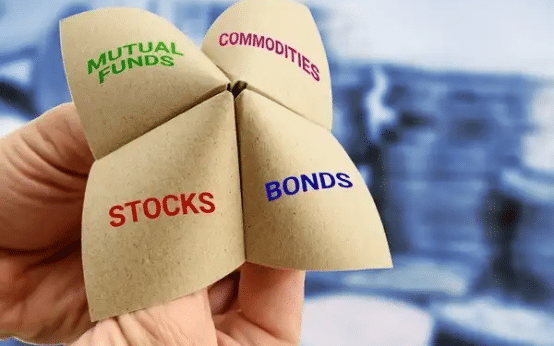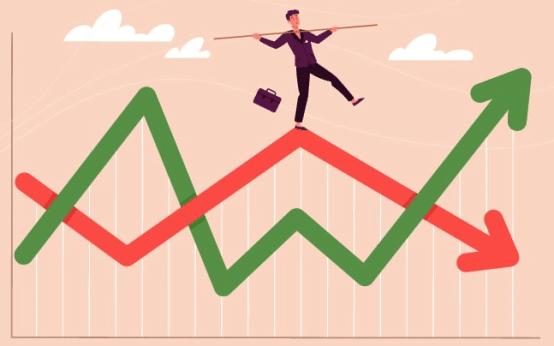The most important question here is: are ETFs really that safe or should you be worried to place your savings on this bet? We’ll explain exactly what this investment option is, its benefits and downsides. Keep reading through this beginner’s guide to understand more.
What is an ETF?
ETFs first started back in 1993, when it was a great option to mutual funds. Its purpose is to allow investors to build a large portfolio with extra security, despite the speed. So let’s start from the beginning, what are mutual funds and why do people look for them so much?
What are mutual funds?
As a single investor your possibilities are limited to the amount of money available in your wallet or savings. That means an investor can take some time to build a big and varied portfolio, maybe years of hard work! The solution came through the use of mutual funds, a pool of money from many individuals that is used to buy stocks and assets.

This money is operated by pros in the market that make investments according to the fund owners’s objectives. That way, each investor can access a variety of items, such as bonds, stocks and equities. It also reduces risk, since everyone involved shares gains and losses.
Over time, many types of funds came into existence to better attain these goals and one of them was the kind now known as the ETF.
So what are ETFs?
One of the main disadvantages of mutual funds were managing costs, which could be quite high. ETFs are much cheaper to manage and much more tax efficient. They are low risk and low cost, ideal for conservative investors.
It can be sold in a stock exchange, just like regular stocks, and can be traded all day. That also means its price fluctuates more than mutual funds, which can only be sold once a day when the market closes.
Why invest in an ETF?
Knowing all that, should you invest in an ETF? For sure, at least if you’re looking for stability and portfolio variety. But don’t take us on our word, read below the main advantages of this investment to get started.
1. Diversify your investment portfolio with ETF
Most investors come across ETFs when looking for a way to diversify their portfolio. Unlike stocks, they aren’t focused and allow you to invest in many things at once. One massive advantage is: you don’t have to actually choose each one individually.
In general, ETFs cover most asset classes, including a broad variety of sectors, companies, bonds and other investments. There’s also an option to buy regional or niche investments, if you so desire.
That way, you can easily access stocks and bonds in hard to get markets (which often provide good returns).
2. Trades in the same way as stocks
Unlike mutual funds, ETFs aren’t traded only once a day, making them more dynamic. Their prices also vary during the day, allowing investors to know how much they paid for assets in a few minutes, rather than a few others.
For managers, this makes it easier to move money between asset types, making the fund more profitable in short term investment. It allows you to sell short (by borrowing money from a broker). So it can fit in many investment profiles, from riskier types to the more conversative, that want to earn money safely over time.
3. Low cost acquisition of ETF
Depending on the trading company or broker you hire, the trading fees can be as low as US$0, which cheapens many stocks’s prices. There are more advantages to this style of investment: they tend to have lower management fees than other kinds of funds.
The lower costs comes from a number of services brokerage firms don’t have to provide to ETF investors. Unlike what happens with mutual funds, they rarely (if ever) need to have a service staff ready to answer questions at all days or sell once the market closes. There’s also no need to send daily reports to fund owners, since these are dealt through brokers that keep their clients informed.
Since there’s less administrative costs involved, buying and selling ETFs becomes less costly as well.
4. Transparency when investing
Are you worried about investing in ETF stocks because you won’t know what type of assets are involved? Don’t worry, they’re a lot more transparent than that. Brokerage firms send monthly reports disclosing what’s currently in their portfolios.
Also, you can find out what kind of investments are involved in an ETF by checking the securities the index they follow have.
5. Immediate reinvestment
Dividends are immediately reinvested to make the return even better. That means an investor doesn’t have to keep track of dividends constantly, although it is recommended to pay attention to your broker’s periodical reports for safety.
6. Efficient risk management with ETF
Some investors are looking to expand their portfolio with many sectors or even countries that can give better returns. Thanks to their variability, ETFs are one of the best ways to start and be exposed to many assets quickly.
Keeping a varied portfolio is a key to avoiding economic instability and downfalls in a given sector. Let’s take an investor with stocks mostly in agriculture firms in Brazil. While they may bring profits for years, as soon as a natural crisis hits, stocks can fall quickly and the investor with be in for a heavy downfall and financial losses.
Through ETFs, he can short bonds in the sector and change his portfolio quickly. His finances will be safer with less eggs in a single basket.
7. Tax benefits
Taxes only incur on ETFs upon sale, which means each investor pays only once to keep their stocks. Mutual funds, on the other hand, incur taxes through the lifetime of the asset, that can mean a few times a year. Usually, the less taxes one has to pay for their investments, the more lucrative it can be.
The tax for dividend payout rates is also lower for ETFs than their peers, mutual funds.
Why you shouldn’t invest in a ETF?
As with any type of investment, there are pros and cons which have to be considered before making any decision. Remember that what one can consider advantages could be less than desirable for your investment style.
That’s why it’s so important to research a lot before starting. ETFs are the same: for people looking for quick and dynamic returns they can be extremely safe options, especially when compared with other funds. But some long term investors could not see the same returns, as we’ll show below.
1. Long term investors won’t benefit from intraday price changes
If you have a 10 to 15 year period for your investment, which happens a lot with people planning for retirement for example, this could be a bad choice. Intra-day pricing can lead to unnecessary trades which create extra costs.
Our tip is: understand your investing objectives and stick to them. Fearing hourly price fluctuation can be a danger to your long-term goals.
2. Management fees can make them more expensive
If you’re considering investments being funds, ETFs are more expensive. We’ve talked so far about this modal when compared with other mutual funds, but that doesn’t apply for stocks, for example. The management fees for stocks are lower, implying better returns.
What to consider before buying a ETF?
We’ve arrived at the bottom line and the most important question of all: it’s time to buy an ETF, how do you make sure you’re getting the best profit available or the best results considering your objectives? It’s important to watch a few details listed below.
1. Commissions and fees involved
You pay commissions whenever you buy or sell ETFs, even small prices can become a large amount over time. So check your options carefully and look for brokers that offer decent value for money. Fees may not be applied when buying online, for example, which could set a broker apart from the competition if you’re looking to buy and sell often.
2. Spreads costs
Whenever buying or selling ETFs you must pay the “spread”, which is the difference between the higher and lower price for sale. While high spreads may seem interesting at first (since the stocks can reach a better price), they will incur more cost.
3. Premiums and discounts
While mutual funds are sold at net asset value (NAT), ETFs rely on market prices for that. That’s why some investors end up paying more than its stocks or bonds are actually worth. Keep and eye out for premiums and discounts daily, maybe it’s better to wait a while before actually making a deal.
4. Market volatility
ETFs react to the market, since the buy/sell spread can change a lot depending on economic conditions. Timing is everything with active investing, so make sure you know that the conditions are currently favorable or that they have a high chance of shifting in your favor in the future.

 14 Investment Ideas for a Balanced Portfolio
14 Investment Ideas for a Balanced Portfolio  13 Simple Ways to Lower Investment Risk
13 Simple Ways to Lower Investment Risk  9 Keys to Investing in Local Ventures Without a Huge Budget
9 Keys to Investing in Local Ventures Without a Huge Budget